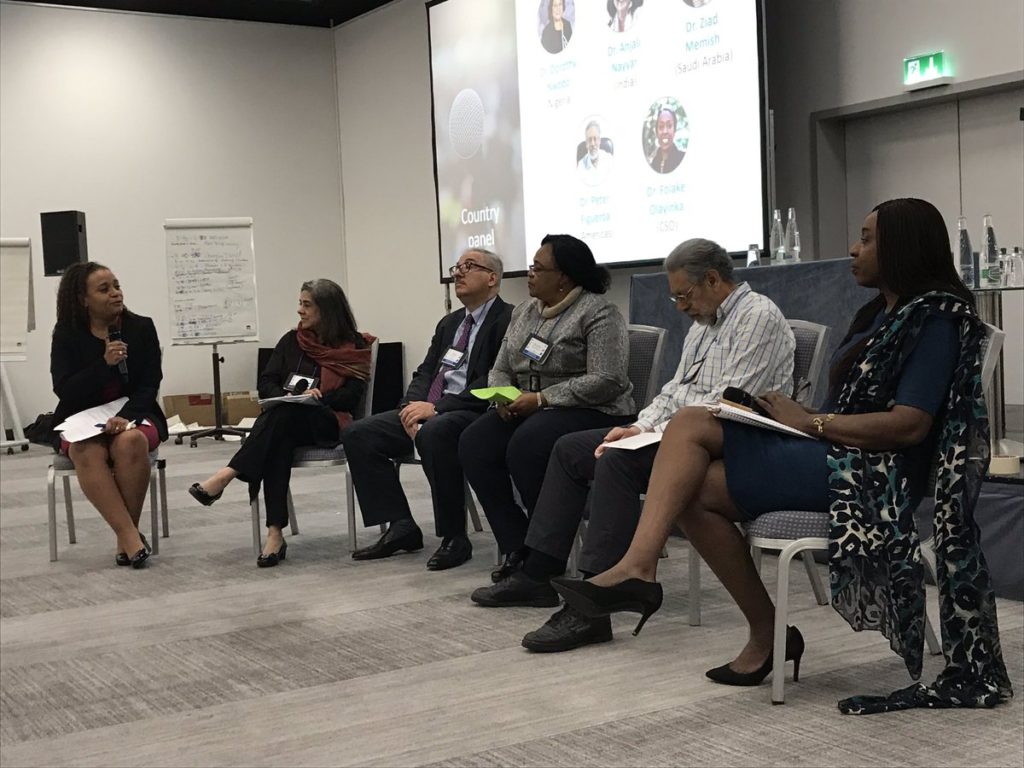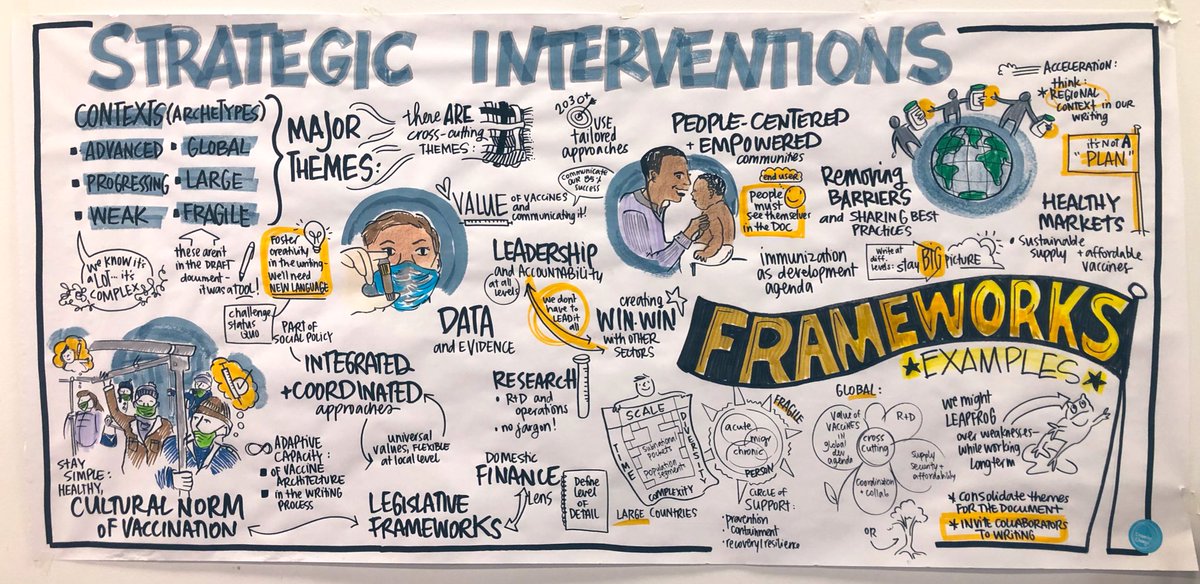WHO refuses right to refuse vaccines.
WHO Stakeholders Meet To Establish A “Different Approach” For Post-2020 Vaccine Strategy
The World Health Organization and global partners wrapped up a meeting today to develop a vision and strategy prototype for the post-2020 decade of action on vaccines and immunizations. This new plan of action for 2021-2030 will take a different approach that is more “bottom up” and collaborative in engaging countries and other stakeholders to tackle emerging immunization challenges, including recent measles and diphtheria outbreaks and growing “vaccine hesitancy” across WHO regions.
The 3-day meeting, entitled “Co-creating the Future of Vaccines and Immunization,” took place in Geneva this week from 19-21 March, and marked a key milestone in the development of a unified vision and plan for 2021-2030 that will guide WHO’s work on vaccines and immunization.
“WHO is very pleased to be leading this effort in partnership with all stakeholders, working towards creating a new vision and strategy for immunization. And with the end goal of having a clear operational and resource plan for health impact in countries,” Peter Salama, executive director Universal Health Coverage/Life Course, said in a WHO news release.
The stakeholders at the meeting included “representatives from academia, global immunization and broader health partnerships, Civil Society Organizations (CSOs), donor agencies, Ministries of Health, industry, private sector, research institutes, and multilateral organizations,” according to the release.

Progress and Challenges in the “Decade of Vaccines”
The Global Vaccine Action Plan (GVAP), which guided the previous decade from 2011-2020, dubbed the “Decade of Vaccines,” will soon come to an end, presenting both progress but also new challenges.
While the “Decade of Vaccines has achieved significant progress for immunization,” a background document on the meeting notes that “most GVAP goals will not be met by 2020, with existing/emerging realities further inhibiting progress.” The new plan, it says, “is needed to set a compelling, country-centric vision and direction for the coming decade.”
According to the annual assessment of the Strategy Group of Experts (SAGE) on Immunization, 2017 had the highest number of child immunizations reported for a given year – 116.2 million – but also large measles and diphtheria outbreaks that caused many deaths in multiple WHO regions due to low national coverage, or pockets of low coverage.
Added to these challenges in immunization coverage is the growth of “vaccine hesitancy” across regions but particularly in North America and Europe, which the background document attributes in part to the role of social media in spreading mis-information.
It explains that the “new approach” being taken to collaboratively develop the post-2020 vision and strategy draws from existing country strategies as sources that will shape the unified vision and strategy for 2030.” It further describes the process of engaging stakeholders as “deep and broad,” and as applying a “holistic, representative and collaborative working structure.”
At the start of the meeting, Farani Azevêdo, ambassador of Brazil at the UN Mission in Geneva, asked that participants “take into account the experience of the BRICS countries – Brazil, Russia, India, China and South Africa – and the countries in the WHO Region of the Americas that have delivered good practices with access to and production of vaccines.”
“People must be at the centre of healthcare and their free and equal rights to essential healthcare services such as vaccinations must be observed throughout their life-course, without discrimination,” Kate Gilmore, deputy high commissioner for human rights at the United Nations, said at the meeting.
“There is no such thing as a right to refuse vaccines when the consequences of doing so is to be borne by others and undermine the rights of others to health, as recognized in the International Human Rights Framework,” she said.

Details of the Post-2020 Plan for Vaccines and Immunization
The new plan of action for 2021-2030 “aims to provide a unified vision and approach for vaccines and immunization, with clear strategies and tactics that sets a new compelling country-centric vision and provides direction for the global immunization community in the coming decade,” the release states.
The purpose of developing a unified plan is “so that all countries, regions and partners can define their own strategies and operational plans in a coordinated way,” the background document explains.
The plan will also link with other health agendas for the 2021-2030 period, it says, and will leverage the investment priorities of the global vaccine alliance, Gavi, as detailed in the Gavi 5.0 process.
The stakeholder meeting this week is part of the first stage in the process of developing and formalizing this plan. After the prototype of the post-2020 vision and strategy is developed, it will then lead into a “draft zero” of the post-2020 vision and strategy to be “broadly circulated for open input, comments, revisions, additions over several months,” it says.
After developing the strategy and vision, the other components in the development of this plan, which include local, regional and global implementation plans; revised M&E guidelines; and an advocacy plan and call to action, will be developed.
Once finalised, these will be submitted to the 73rd World Health Assembly in May 2020 to be discussed and endorsed by ministers of health of all WHO members states.
According to the WHO news release, the six principles that will guide the development of the new vaccines and immunization plan are:
- Country impact is at the centre of plan development;
- Integrate novel ways of thinking and ensure broad engagement of stakeholders;
- Collaboration is key while staying focused and practical;
- Incorporate lessons learned from previous plans and strategies;
- Build on existing global health initiatives and partnerships; and
- Showcase how next-generation immunization systems will contribute to and align with broader health agendas like SDGs, UHC and PHC.
Image Credits: Kate O'Brien @Kate_L_OBrien, Sam Bradd @drawing_change.
Post a Comment